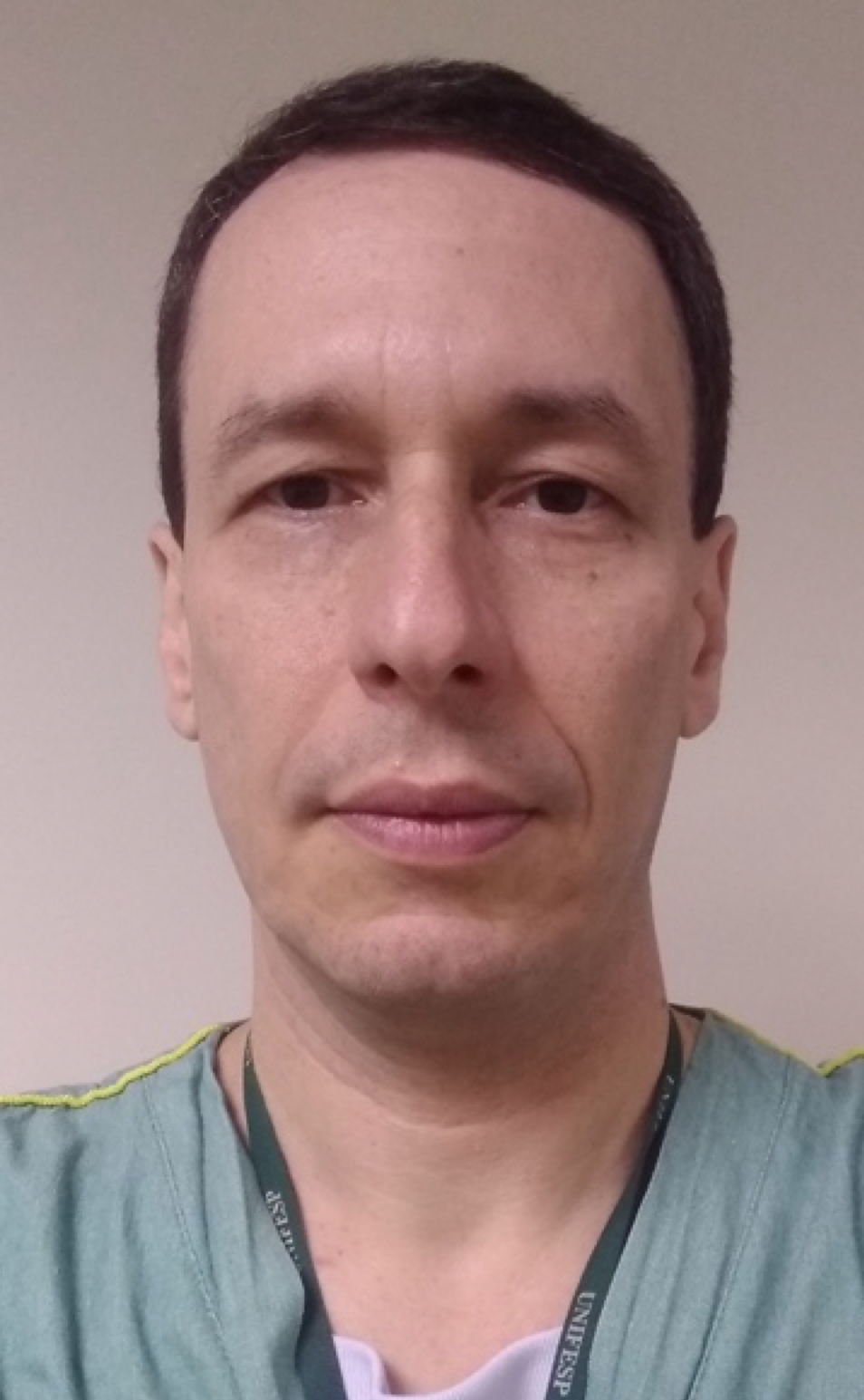Fernando A. M. Herbella1, Jin Ye Yeo2
1Department of Surgery, Escola Paulista de Medicina, Federal University of São Paulo, São Paulo, Brazil; 2AOE Editorial Office, AME Publishing Company
Correspondence to: Jin Ye Yeo. AOE Editorial Office, AME Publishing Company. Email: aoe@amegroups.com
This interview can be cited as: Herbella FAM, Yeo JY. Meeting the Editorial Board Member of AOE: Dr. Fernando A. M. Herbella. Ann Esophagus. 2024. Available from: https://aoe.amegroups.org/post/view/meeting-the-editorial-board-member-of-aoe-dr-fernando-a-m-herbella.
Expert introduction
Dr. Fernando A. M. Herbella (Figure 1) is an Affiliate Professor at the Department of Surgery, Escola Paulista de Medicina – Federal University of São Paulo, São Paulo, Brazil, where he obtained his MD, residency in General Surgery and Gastrointestinal Surgery, MSc and PhD. He completed fellowships in gastrointestinal surgery at the University of California San Francisco and at the University of Rochester. His main focus is on the physiology and surgery of the foregut.
Dr. Herbella has contributed to research in achalasia and researched extensively on gastroesophageal reflux disease (GERD). Currently, his research interests lie in GERD, hiatal hernia management, and surgical techniques for various esophageal diseases.

Figure 1 Dr. Fernando A. M. Herbella
Interview
AOE: What drove you into the field of gastrointestinal (GI) surgery?
Dr. Herbella: I fell in love with gastrointestinal physiology and anatomy during medical school. Then I found that most of the foregut operations are intended to restore anatomy and fix physiology. I believe these were the motivations. Obviously, I had the pleasure to have superb mentors in the field that nurtured the passion.
AOE: Could you provide an overview of the advancements in technology and techniques for gastrointestinal surgery? How have these advancements impacted your practice?
Dr. Herbella: Technology is advancing at light speed. GI surgery has been graced by technological advances in the diagnosis and treatment of diseases. High-resolution manometry, different endoscopic therapies, and robotic surgery certainly are landmarks in the field. New technology is usually costly. Not all advancements are routine in some countries, especially in public hospitals as is the case with my university. Nonetheless, the technology itself may not be available but the knowledge that it may bring can be very useful.
AOE: You have researched extensively on gastroesophageal reflux disease (GERD). Are there any recent findings in GERD that stood out to you? What insights can we derive from these findings?
Dr. Herbella: Even though GERD is a very common disease, it is not fully understood yet. The current hot topics in GERD are alternative treatments to laparoscopic hiatoplasty and fundoplication. Various and ingenious methods are still in test but none reached the same outcome so far.
AOE: In your opinion, what are some significant research gaps in GERD that remain to be explored?
Dr. Herbella: It is very common in medical discussions that the biggest gap in GERD is the absence of an intermediary solution between medication and laparoscopic fundoplication. In my opinion, laparoscopic fundoplication is an excellent treatment. I believe the biggest gap is how to offer this solution to a higher number of patients and how to achieve better outcomes in the community centers since results are still better in high volume academic centers.
AOE: Recently, your team highlighted the lack of intra- and intersurgeon agreement in technical key points of sleeve gastrectomy (1). What problem does this pose, and what can be done to overcome this issue?
Dr. Herbella:I believe that two sleeve gastrectomies are not born the same, even if performed by the same surgeon in the same setting. This study kind of proved the aforementioned point since surgeons disagreed with themselves regarding the technique! This poses the problem of comparing results and defining the ideal technique since bariatric surgeons are struggling with weight loss and GERD standing in the two pans of the scale.
AOE: How has your experience been as an Editorial Board Member of AOE?
Dr. Herbella: AOE is a journal in constant improvement. It is a great honor to be part of it. The team is very pleasurable to work with and editorial board members’ opinions are always taken into consideration.
AOE: As an Editorial Board Member, what are your expectations for AOE?
Dr. Herbella: A great journal is made of an editorial board and authors of excellence. AOE certainly has the first piece. I expect that more high-standard authors consider submitting papers to the journal.
Reference
- Katayama RC, Herbella FAM, Patti MG, et al. Laparoscopic Sleeve Gastrectomy Lacks Intrasurgeon and Intersurgeon Agreement in Technical Key Points That May Affect Gastroesophageal Reflux Disease After the Procedure. Obes Surg. 2024;34(2):542-548.
